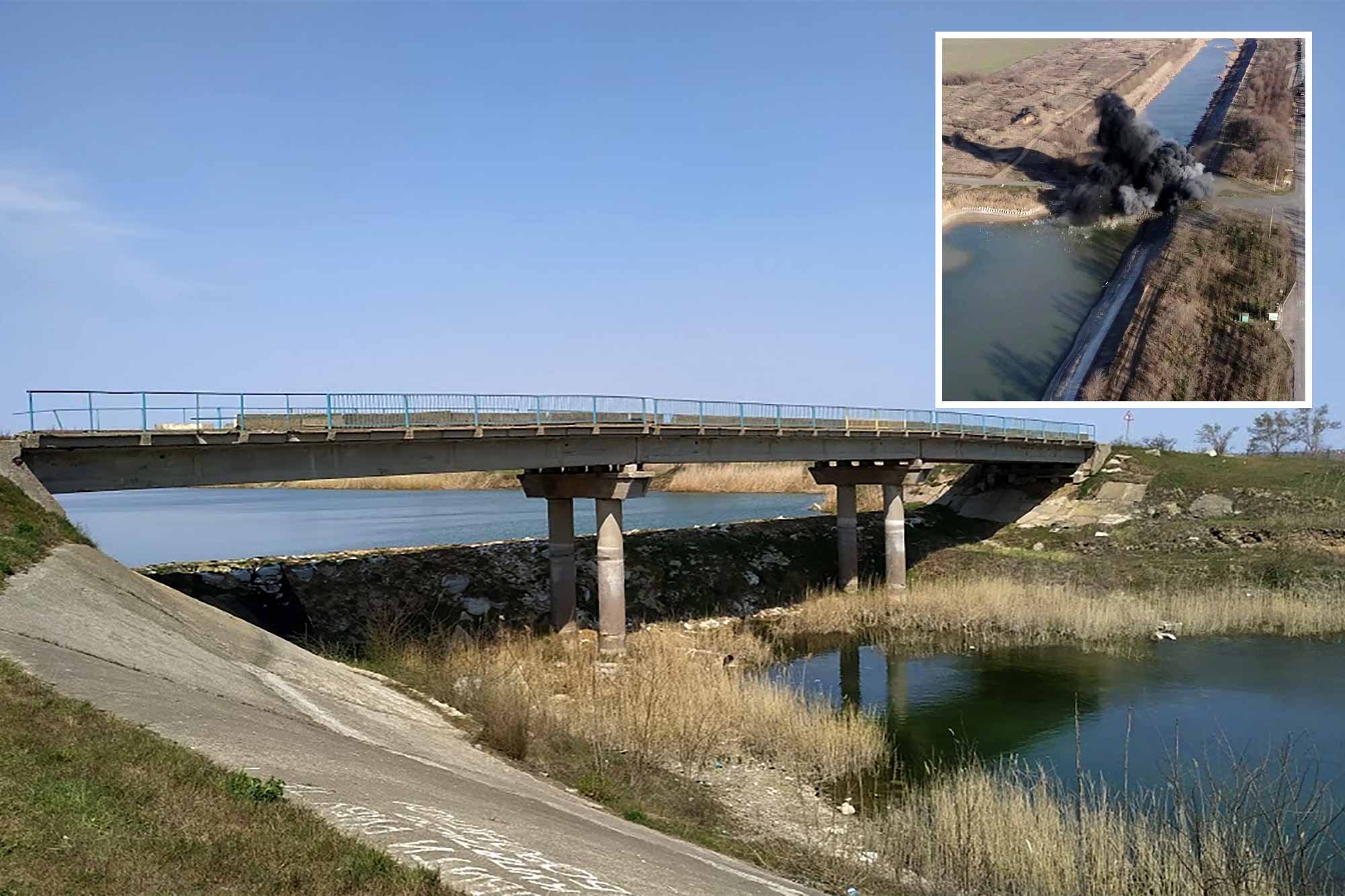Russian Commanders Face Trial for Attacks on Critical Infrastructure
Senior figures accused of facilitating water supply to Crimea while causing billions of dollars’ worth of damages to Ukraine.
Russian Commanders Face Trial for Attacks on Critical Infrastructure
Senior figures accused of facilitating water supply to Crimea while causing billions of dollars’ worth of damages to Ukraine.
The deputy commander of the Black Sea Fleet of the Russian Federation faces trial for ordering the attack and seizure of critical infrastructure in the first days of Russia's full-scale invasion of Ukraine that facilitated the flow of water to occupied Crimea.
The Zhovtnevyi district court of Kryvyi Rih in the Dnipropetrovsk region is considering the merits of the case against Mikhail Yasnikov. According to the investigation, he – along with Dmitriy Markov, commander of the 11th separate engineering brigade of the Southern Military District of the Russian Federation - led the seizure of the Kakhovka hydroelectric power station (HPP) facilities and the sabotage of the North Crimean Canal in the Kherson region. This allowed water movement to Russian-occupied Crimea while causing billions of dollars’ worth of damages for Ukraine. Yasnikov and Markov will be tried in absentia.
Yasnikov, 47, is a Russian citizen from Khabarovsk in south-eastern Russia. A major general, he is deputy commander federation for material and technical support of the Russian fleet. Markov, 46, was born in Krasnodon in the Luhansk region. Also a Russian citizen, his registered place of residence is the city of Kamensk-Shakhtinsky in the Rostov region. He is a commander of the 11th individual engineering brigade of the Southern Military District of the armed forces of the Russian Federation, military unit 45767, and a colonel.
Yasnikov and Markov are charged under Part 1 of Article 438 of the criminal code of Ukraine on the violation of the laws and customs of war. If convicted they face between eight and 12 years in prison. According to the investigation, Yasnikov gave the orders and controlled the seizure of the Kakhovska HPP and the North Crimea canal, while Markov directed the soldiers and the detonations.

The North Crimean Canal is one of the largest irrigation structures of the former USSR. The canal takes water from the Kakhovsky reservoir in the Kherson region to Crimea. It was built to transfer water from the Dnipro to the arid steppe regions of the Kherson region to irrigate agricultural lands and to supply Simferopol, Sevastopol, Sudak, Feodosiya and the Kerch peninsula. In 2014, after the occupation of Crimea, Ukraine stopped the water supply to the peninsula via the North Crimean Canal. At temporary dam was built on the 91st kilometre using polypropylene fertilizer bags filled with sand and clay laid across the channel. The canal was not completely blocked, as it also irrigates part of the agricultural land of the Kherson region.
According to the investigation, on February 24, at around 10:30 am, the Russian military seized all the facilities of the Kakhovska HPP in Nova Kakhovka, stopped personnel from working and mined the bridge across the power station. On February 27, the occupying forces seized all hydro-technical facilities and facilities of the North Crimean Canal Authority in the city of Tavriisk.
So as to launch the supply of water to the peninsula, the Russian military blew up barrier structures in several places. On February 27, the temporary dam at the 91st kilometre and the main barrier structure at the 78th kilometre were damaged. On February 28, the shutters on the unfinished concrete dam located close to occupied Crimea on the 107th kilometre of the canal were also damaged.
Due to these actions, water began to flow to the occupied peninsula. The irrigation of agricultural lands in the Skadovskyi and Kakhovsky districts of the Kherson region became impossible due to the damage.
The accused persons have been declared internationally wanted and the materials related to the case sent to Interpol, the Kherson regional prosecutor's office told IWPR. The prosecutor filed criminal proceedings for the recovery of damages caused by the execution of the defendants' orders, a lawsuit which is being considered by the court together with the indictment. The case estimates 134 million hryvnias (3.6 million US dollars) for damage to the facilities of the North Crimean canal and some 1.4 billion hryvnias (38 million dollars) of ecological harm due to the theft of 43 days of Dnipro water. According to the prosecutors, these damages can be recovered directly from the accused or from the payment of reparations.
The Kherson prosecutor's office noted that the final damages would be established only after the illegal supply of water to Crimea was stopped and a separate lawsuit launched. The left bank of Kherson oblast, where the North Crimean Canal is located, remains occupied and Dnipro water supplies continued to flow illegally from there to Crimea in the summer and autumn of 2022. According to official Ukrainian calculations, as of the beginning of November, the damages from stolen water amounted to 15.5 billion hryvnias. Experts have calculated that Russia uses Ukrainian water worth 32 million hryvnias every day.
The prosecutor's office is confident that sufficient proof was collected during the pre-trial investigation to prove the guilt of the accused.
The case was referred to the court in August 2022. The victims in the case are the administration of the North Crimean Canal and the State Agency of Water Resources of Ukraine. A lawyer from the free legal aid centre was appointed to the accused.
Yasnikov and Markov were summoned in the Government Courier newspaper, on the website of the prosecutor general's office and on the court website, according to the requirements of Ukraine’s criminal procedural code. After their repeated failure to appear, the court granted the prosecutor’s request at a December 14 meeting to hold a special trial in absentia.
The announcement of the indictment is scheduled for January 23, 2023.
